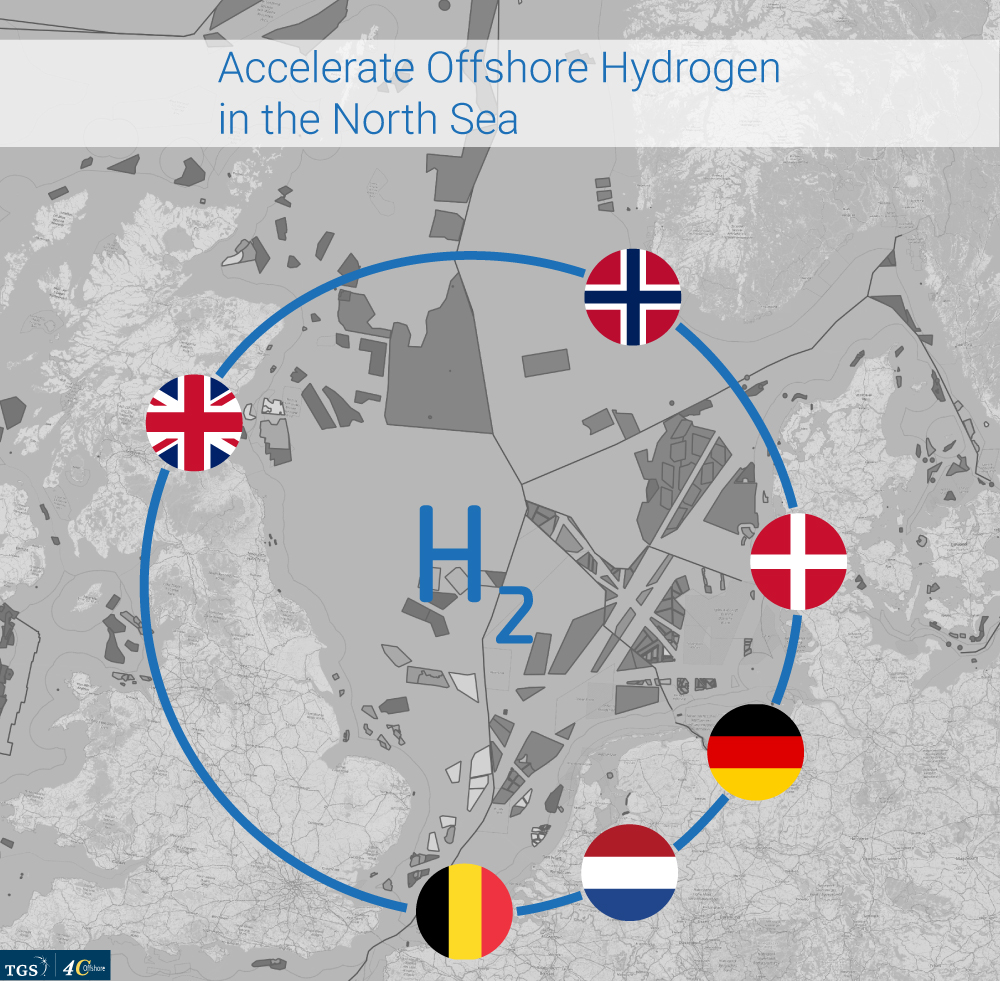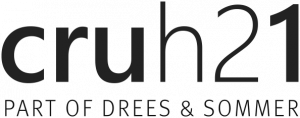MOHN (Masterplan Offshore Hydrogen North Sea) is funded by the BMBF through the 7th energy research program with a timeline of 18 months starting from September 2022. Focus is set on offshore electrolysis, stakeholder cooperation, scenario modeling and framework conditions.
Offshore Electrolysis
Our goal is to develop a strategy for the ramp-up of offshore electrolysis in the North Sea thereby exploring cross-border concepts to accelerate implementation.
Cooperation
This strategy will be elaborated together with country-specific stakeholders and flanked by a model-based approach. For this purpose, existing national and regional initiatives and stakeholder activities are to be integrated into a coordinated and effective plan.
Guidance
Additionally, framework conditions and lessons learnt from the countries are to be condensed and made available to stakeholders and regulators. This may produce valuable guidance for ongoing onshore infrastructure planning activities.

Work packages
MOHN is divided into three work packages. In a first step, offshore areas and countries in the North Sea as well as associated stakeholders are identified and analysed. The aim is to work with country-specific lead-stakeholders and create a solid data basis for the modelling. Emphasis is placed on spatial planning, offshore projects, and current framework conditions. Subsequently, systemic offshore scenarios are developed based on the aggregated information from the previous work package. The scenarios are to be developed following an iterative process. Additionally, synergies with the lead project TransHyDE will be used. Finally, scenarios are compared and evaluated for review by the working groups.
Stakeholder cooperation
One of the cornerstones of the MOHN project is the cooperation with stakeholders. In each country around the North Sea, workshops are organized together with Lead-Stakeholders. Lead-Stakeholders are organizations with an expertise in national H2-Market and a broad network, thereby acting as multipliers of the project and identifying the relevant parties to be addressed. Surveys and interviews are also conducted. By participating in MOHN, stakeholders get a unique chance of contextualizing national activities in a European framework and participating in the development of a vision and acceleration measures. Additionally, networking opportunities and knowledge dissemination of best practices in offshore hydrogen market developments are of value.





Survey and workshops
The survey and workshops aim to capture the views and opinions of experts and stakeholders in the hydrogen and offshore industries on a country-level around the North Sea. Participation of a broad spectrum of stakeholders would provide valuable insights to define main hurdles and elaborate solutions for the ramp-up of offshore hydrogen in the region.
Focus is on four key factors that will contribute significantly to the success of the industry: availability of areas for offshore hydrogen production, offshore hydrogen production technology, transport options to consumers and a sizable hydrogen demand.
The goal of the survey is to portray the national range of perceptions and suggested focal points for regulators and politicians and integrate them in a heat-map. Workshops will be organized with associated partners in the countries around the North Sea. The findings of the survey will set the stage for deeper discussions in the workshops with local stakeholders. The results of the survey and the analysis of country-specific conclusions will be presented in an online session to all interested parties.
Project partners

cruh21 GmbH is a strategic project consultancy from the renewable energy sector with a focus on the topics of sector coupling with the key element of green hydrogen as well as offshore wind and offshore hydrogen production. From strategy to concrete idea and concept work, feasibility studies to regulatory consulting - cruh21 advises and supports its clients in the complex and novel project landscape of tomorrow. Originally started as the coordination office of AquaVentus, cruh21 is now at the centre of developments on the topic of green hydrogen. cruh21 plays a special role in the industry-driven hydrogen flagship projects TransHyDE and H2Mare funded by the German Federal Ministry of Education and Research (BMBF). As one of three overall coordinators of TransHyDE, the company is responsible for the overarching interface communication and knowledge management. cruh21 also advises industry, SMEs, cities and regions as well as investors.
Role in MOHN
- Overall project management
- Offshore, regulatory, spatial planning
- Stakeholder management
- Scenario development and evaluation

The Fraunhofer Research Institute for Energy Infrastructure and Geothermal Energy IEG is a think tank focused on the energy transition. Together with its partners from industry and the public sector, Fraunhofer IEG identifies projects with high relevance for climate protection, enables real applications and shapes the energy transition. Fraunhofer IEG is located in regions undergoing structural transformation such as Lusatia, the Rhineland and the Ruhr region, as well as in the industrial region of the Upper Rhine Valley. With the expertise of its team, Fraunhofer IEG supports sustainable transformation on local, national and international levels. Fraunhofer IEG employees combine the necessary expertise in the fields of analysis, operation and planning of sector-coupled electricity, gas and heating grids, drilling and geotechnologies, energy and process engineering, energy economics, georesources and geosciences, storage systems and hydrogen infrastructures.
Role in MOHN
- System analysis
- System integration
- Economic assessment
- Scenario development and evaluation